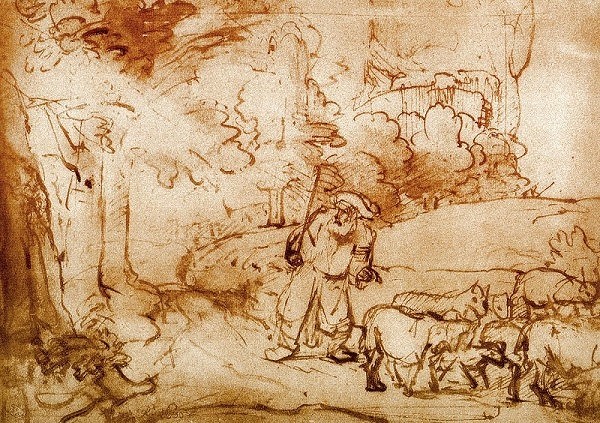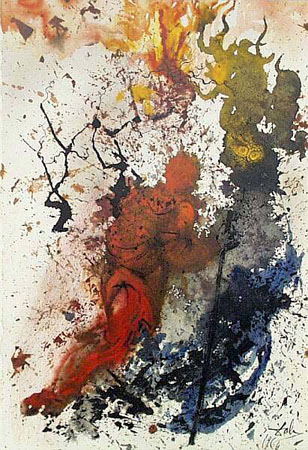This is the text of a sermon preached at Guildford Cathedral at Evensong on 19 August. The texts were Exodus 2:23-3:10 and Hebrews 13:1-15 - both readings speak of the faithfulness of God and the call to liberation.
Today, the American city of Detroit will be full of song and celebration as people gather to honour the Queen of Soul in her home town. It was here, in the church her father led, that Ree Ree as she was known locally began her singing career and her spiritual life.

On a crisp, bright day, almost a decade ago, Aretha Franklin stood on the steps of the Capitol. Wrapped in a thick grey coat, paired with a striking hat, her gloved hands held the microphone, and she sang.
She sang: ‘Let freedom ring’.
Let it ring, ring ring… let freedom ring.
President Obama closed his eyes; and a vast audience was moved to tears. This was an historic moment but also a prophetic one. Her voice expressed the hopes and heartbreak of many; it distilled the struggle against segregation and the legacy of slavery.
President Obama closed his eyes; and a vast audience was moved to tears. This was an historic moment but also a prophetic one. Her voice expressed the hopes and heartbreak of many; it distilled the struggle against segregation and the legacy of slavery.
Over recent days, tributes have woven together her life story with the impact she had on others. It has been said that she was the voice of America: she toured with Martin Luther King and at his funeral, her rendition of "Precious Lord" gave voice to the bewilderment and resilience of grief.
Let freedom ring.
Pain and trauma were re-voiced in blues and soul; jazz and gospel expressed out a vision which defied abuse and turned heartbreak into strength. Hers was the voice which spelt out R-E-S-P-E-C-T, enabling generations to voice their own cry for equality regardless of race or gender. This voice was gift, crafted by skill and underpinned by character; flawed and flawless, hopeful and human.


In the words of Barak and Michelle Obama’s tribute: Every time she sang, we were all graced with a glimpse of the divine… In her voice, we could feel our history, all of it and in every shade - our power and our pain, our darkness and our light, our quest for redemption and our hard-one respect.
Let it ring… let freedom ring.
This cry is voiced in the scriptures which shaped Aretha’s life and shapes ours. The journey towards freedom is fraught with struggle - with power and pain, the darkness and light. The book of Exodus names the groaning and cries of a people who are enslaved. The misery and suffering of the Israelites is observed by God; by a God who seeks to deliver them.
How is that redemption song voiced? How does freedom ring? God works through flawed humanity to restore hope. A flawless glimpse of the divine is made real in human lives. Aretha embodied that in song. Moses embodied it in a call to lead.
The Jewish poet Yakov Azriel retells the family story of Exodus; inviting us to stand with Moses as something mysterious breaks into the mundane; as human curiosity meets divine holiness. He writes:
In the shadow of a burning bush, and in
Its light, we gaze beyond the desert dune.

Moses' story is as complex as that of the Queen of Soul. A Hebrew by birth, given up for his own safety and raised in Pharaoh's palace; living in privilege yet aware of the injustice of the regime. His intolerance for abuse and exploitation leads to an act of violence. He's a man fearing for his own life yet his own people mistrust him. The Moses we encounter tonight is a shepherd fugitive.
Now he looks and turns aside: a bush ablaze yet not consumed. In Azriel’s words:
In the bush's shadow, and its light a thin
Unbroken thread of grace is seen...
There
in the burning bush we see a flame of freedom. God does not coerce
Moses; rather he ignites his curiosity. This isn't a dazzling display
of power and glory. In shadow and light of an intriguing phenomenon,
there's a thin line of grace which enables Moses to gaze beyond the
desert dunes. In the darkness of exile there are glimmers of light and
new purpose.
He hears his name.
The soles of his feet touch the heat of holy ground.
He hides his face.
His words: Here I am.
A voice: God’s ‘I am’.

God chooses to act through one who already burns with a passion for justice. Moses will cry out for freedom in the face of systemic oppression. The voice from this blazing bush is an invitation to us to; a call to courageously enact the possibilities of God’s goodness. This voice is, in the words of one Walter Brueggemann, ‘a flaming warrant for truth to power’.
Moses goes on to express a number of objections to this challenging call. His reluctance is met by the assurance of support from his brother - and by God’s very self. God’s faithfulness as expressed in ‘I am’; the one who was and is and ever will be.
God works through our passions and our voices can be threads of grace. Exodus tells one story of slaves and fugitives whose lives are marked by hope and blessing. Yet cry for freedom to ring out has not ceased.
It’s no less daunting for us than it was for Moses to both stand on holy ground and respond to this call of radical transformation: of relationships, structures, priorities and communities. Our second lesson reminds us that this is about the whole of our life; but it also reminds us that we depend on the love of God.
The writer of Hebrews reminds us of God’s love in words which echo the voice from the flaming bush: Jesus is the same, yesterday, today and for ever. Jesus is ‘I am’, God with us.
For in him, God makes new his covenant and takes notice of human suffering. In Jesus Christ, God’s love reaches out to the vulnerable and marginalised. His teaching challenges the false assurance possessions, status and independence. His love meets us in the depths of despair and humiliation; and heals when we are wounded and fearful. He bears the agony of the cross and the coldness of the tomb. And freedom rings out in resurrection life.
The writer of Hebrews also reminds us of the very practical demands of letting freedom ring out. Mutual love is revealed in friendship and support; our bodies can communicate tenderness, creativity, compassion and support. We are to imitate those whose lives have revealed God’s love to us.


Hospitality is not confined to those we know - but to those with whom our lives intersect in fleeting ways. Those who are imprisoned or on probation, those who seek refuge or who become invisible in residential care aren’t kept at arms length as ‘other’. They are part of us. We are to be content with what we have - a prophetic message in a world of zero hour contracts and executive pay increases, where human beings are still enslaved and trafficked.
Collectively and individually, we are to let freedom ring out: confronting the power of inequality, abuse, illness and discrimination. In our lives, that thread of grace, the glimpse of the divine, can run on. It runs on in what ignites our passion for justice; in what kindles our compassion.
Each of us can take a lead - in acts of service, influencing others, finding allies in campaigning and seeking the welfare of society; in living out R-E-S-P-E-C-T.
May we walk in the light of Christ, by the power of the Spirit at work in us, revealing something of God's love: Let freedom ring out.
© Julie Gittoes 2018
*This
painting created by Kimberley Ramey and the narrative accompanying it
speaks movingly and honestly of the challenge of Hebrews and moments of
hospitality which can be glimpsed or lost; sharing the image and the link to her work to read more about this.